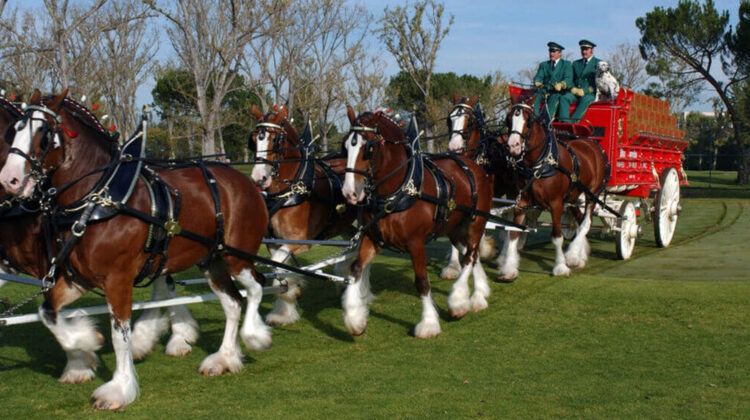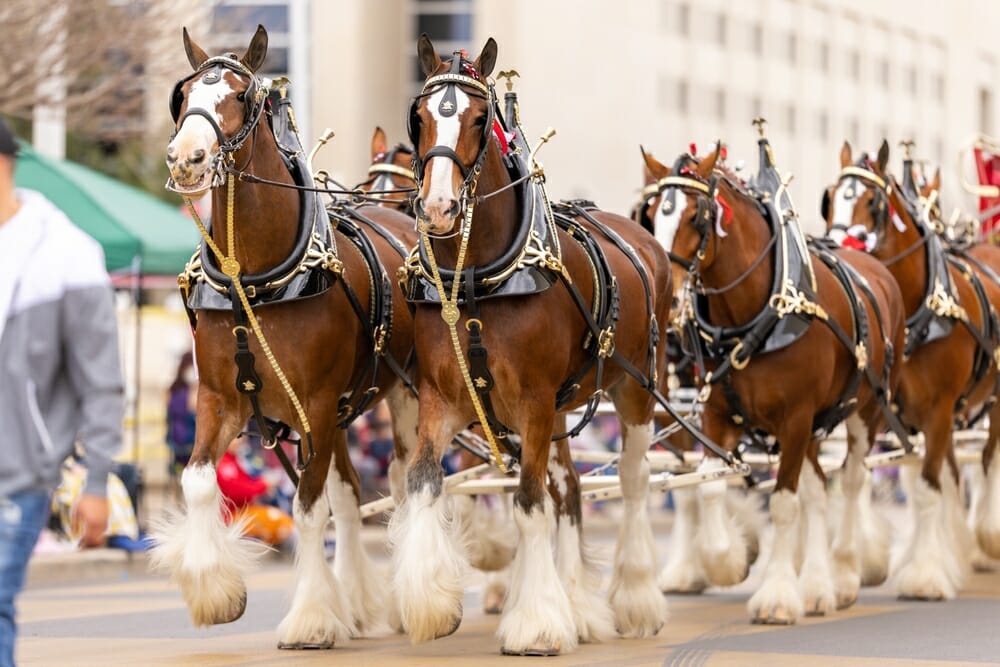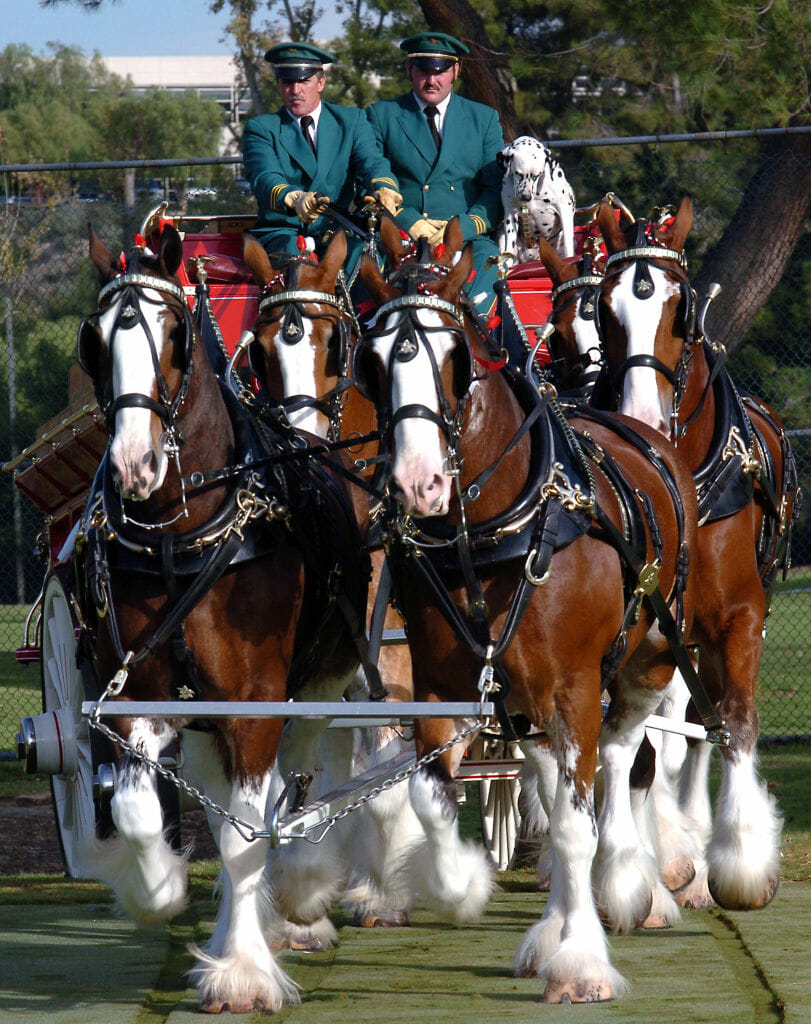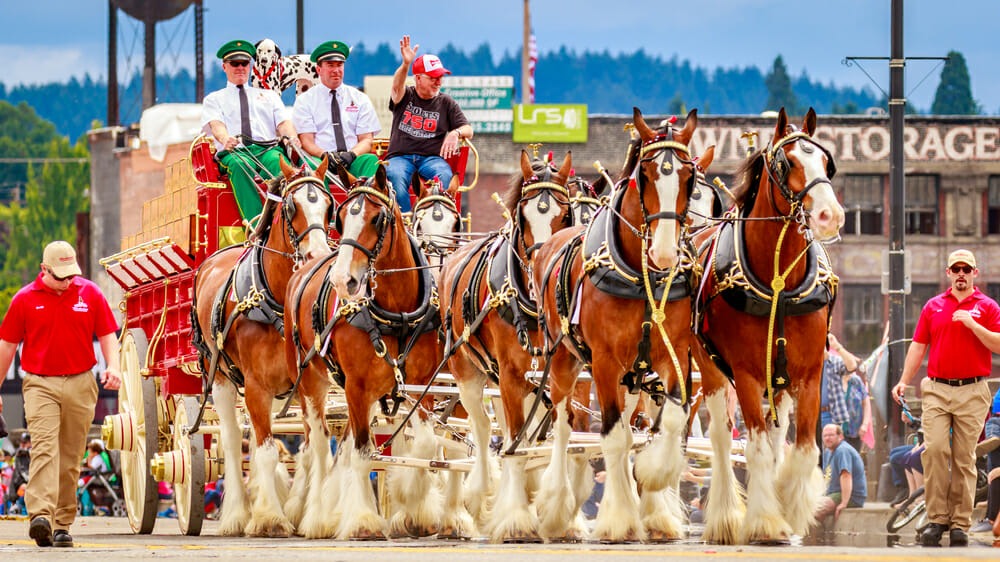
The Budweiser Clydesdales are some of the most iconic company mascots in the world. These teams of majestic horses have been around since the 1930s, and continue to win hearts across the country with public appearances and their famous Super Bowl commercials.
But this year, Budweiser came under fire from PETA for how they treat their horses — and now, the company is making a change that has animal lovers cheering.

PETA investigation finds “mutilation”
Earlier this year, animal welfare organization PETA launched an investigation into the Budweiser Clydesdales: they visited the horses’ breeding facility at Warm Springs Ranch in Missouri, as well as Grant’s Farm where they are trained.
They discovered that Anheuser-Busch was amputating the Clydesdales’ tails for cosmetic reasons. The practice is called “tail docking,” and it is widely condemned by the horse community and banned in 10 US states.
The American Association of Equine Practitioners “condemns the alteration of the tail of the horse for cosmetic or competitive purposes,” according to PETA, and the practice goes against the American Veterinary Medical Association’s Principles of Veterinary Medical Ethics.
Tail docking is typically done on horses when they are foals: the bones of their tails are severed or tied with a band to stop blood flow. It’s done by horse owners to achieve a certain aesthetic look, but horses use their tails to protect themselves against insect bites and associated viruses.
“The tail supports and facilitates insect defense, comfort, welfare, reproduction, and disease prevention,” said equine veterinarian Sid Gustafson. “It is abusive and inhumane to deprive a horse of their tail. Tail amputation results in a lifetime of impaired balance moving at speed running and turning. It is animal-abusive and medically undignified to deprive a horse of their tail, except in cases of medical necessity.”

Budweiser makes a change
After PETA revealed their findings — calling it “Tailgate” — thousands of supporters petitioned Anheuser-Busch to stop the practice of mutilating the Clydesdale’s tails.
In response to the controversy, the brewer announced this week that they have finally stop tail docking.
“The safety and well-being of our beloved Clydesdales is our top priority,” an Anheuser-Busch spokeswoman said in a statement on Wednesday, per the New York Times. “The practice of equine tail docking was discontinued earlier this year.”
PETA celebrated the news: Senior Vice President Kathy Guillermo said that the staff were “cracking open some cold ones today to celebrate.”
“This victory comes after dozens of PETA protests, nationwide ad campaigns, and pleas from more than 121,000 concerned consumers, and it sends a message to other companies that animal abuse doesn’t sell,” Guillermo wrote in a statement.
Budweiser has had a lot of memorable mascots over the years — from the Budweiser frogs to the “wassup!” guys — but the Clydesdales are easily their most enduring and iconic, dating all the way back to the 1930s.
The horses made their first appearance to celebrate the repeal of prohibition: Budweiser hitched a beer wagon to six Clydesdale horses, who toted beer to a cheering crowd at the Empire State Building, and even headed to Washington DC to present a case to President Roosevelt.

In the decades since, the Budweiser Clydesdales have remained iconic mascots for the company, making promotional appearances around the country. Since the 1950s, they have also been accompanied by a mascot dalmatian.
Many Americans know the Clydesdales best from their iconic Super Bowl commercials: among the most famous are “Puppy Love” and the 2002 “Respect” ad that paid tribute to the victims of 9/11.
The Budweiser Clydesdales are iconic horses that mean a lot to Budweiser and fans around the country — it’s sad that these horses had their tails unnecessarily mutilated for so long, but we’re happy to hear the Clydesdales will have their beautiful tails intact in the future.
Please share this amazing news!

Leave a Reply